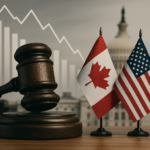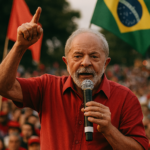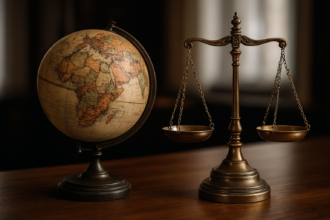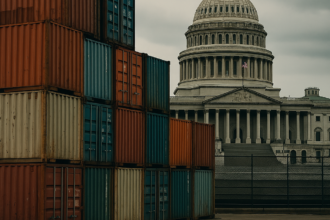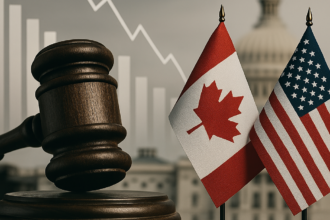The warning came from the World Trade Organization: trade disputes between the United States and China could reduce trade between the world’s two largest economies by up to 80%. This is an alarming projection — not just because of the numbers, but because of the symbolism. Could we be witnessing the end of an era of economic interdependence and the beginning of a new cycle of strategic isolation?
From globalization to commercial nationalism
The promise of the 21st century was one of integrated markets, efficient global supply chains and increased access to goods and capital. But amid a wave of distrust, protectionism and geopolitical tensions, this logic is being reversed. States, once champions of openness, are now becoming its greatest saboteurs.
China, with its centralized industrial policy, and the US, with increasingly broad and arbitrary tariffs, are leading the movement towards deglobalization. The discourse of “economic sovereignty” gains strength — but what is lost is the capacity for cooperation and shared prosperity.
The consequences are global — including for Brazil
The weakening of trade between the US and China does not only affect them. It affects the entire architecture of international trade, making products more expensive, disrupting supply chains and creating bottlenecks in sectors that depend on global scale — such as technology, food and energy.
For countries like Brazil, which oscillate between defensive protectionism and timid openness, the worst choice would be sit on the fence. In a world that is fragmenting, anyone who does not choose a clear model becomes irrelevant.
State intervention and the illusion of control
As Hayek warned, “Central planning does not eliminate uncertainty—it merely transfers it into the hands of those who cannot foresee it.” Governments’ attempts to control trade through tariffs and barriers are an emotional response, not a rational one. And the cost always falls on the average citizen: more expensive, more unstable, less free.
Conclusion
The WTO’s forecast is more than just a given — it is a sign that the world is heading towards a structural rupture in the way it produces, consumes and cooperates. The question that remains is: will Brazil be a passenger or a protagonist in this new chapter?

